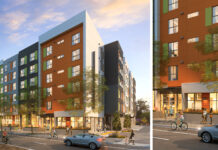NEW DELHI: The participation of organized real estate developers would increase in the affordable housing segment with various tax incentives announced in the Budget, the rating agency ICRA has said.
“The thrust of the measures announced in the Union Budget 2017-18 for promotion of the housing sector have been focused on the affordable segment. This segment which has high demand potential has been underserved on account of inadequate supply and limited credit availability,” the agency said in a report.
The key measures taken include giving infrastructure status for affordable housing segment, relaxation of criteria for eligibility for tax benefit under Section 80IBA and higher allocation for the Pradhan Mantri Awas Yojana (PMAY).
“The budget accorded infrastructure status to affordable housing projects, which can help developers in accessing credit at lower rates and longer tenures, including from sources such as external commercial borrowings. The cost savings from these benefits would further incentivize projects in the affordable segment,” the report said.
ICRA said that it expects that the availability of tax exemption would spur many developers in the organized sector to enter the affordable housing segment.
“For a representative affordable housing project with execution cycle of 3.5 years and profit before tax (PBT) margins of 16 per cent, the tax exemption would result in a boost to the equity IRR (internal rate of return) by around 3 per cent.
“The incremental returns estimated are moderated by the fact that minimum alternate tax (MAT) would be payable on the book profits from the project, notwithstanding the income tax exemption under Section 80IBA,” the report said.
ICRA, however, said that the 3 per cent incremental return estimated does not factor in benefits, which could be available to the developer by way of offsetting MAT credit against taxes arising out of other projects on the same balance sheet.
To boost demand for affordable homes, ICRA said the government has taken steps to improve affordability for the end consumers, especially in the economically weaker section (EWS) and lower income group (LIG).
The credit linked subsidy available through the PMAY is expected to play a substantial role in providing subsidized credit facilities to consumers in the lower income groups.
The government had announced an expansion of the income limits for the beneficiaries under the credit linked subsidy program of PMAY in December 2016, thereby further increasing the target customer base and expanding it to the middle income group (MIG). The earlier income limit for beneficiaries in the LIG segment was Rs 6 lakh per annum.
“Eligible beneficiaries in the MIG category (first time buyers only) can have a maximum annual income of Rs 18 lakh and will receive interest subsidy of 3 per cent for principal up to Rs 12 lakh for 20 years. This move is expected to significantly increase the number of people eligible for receiving credit linked subsidies and drive demand for affordable housing projects,” the report said. -PTI






